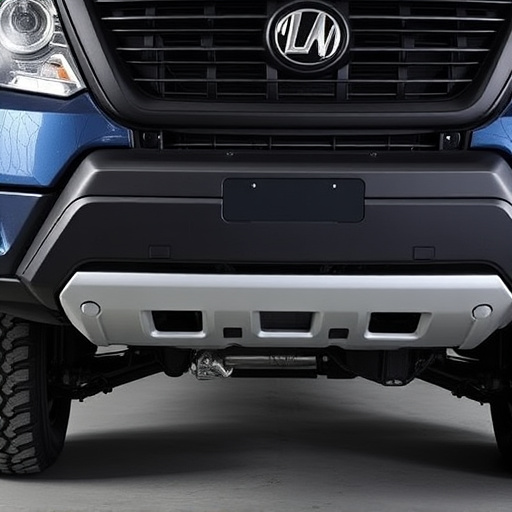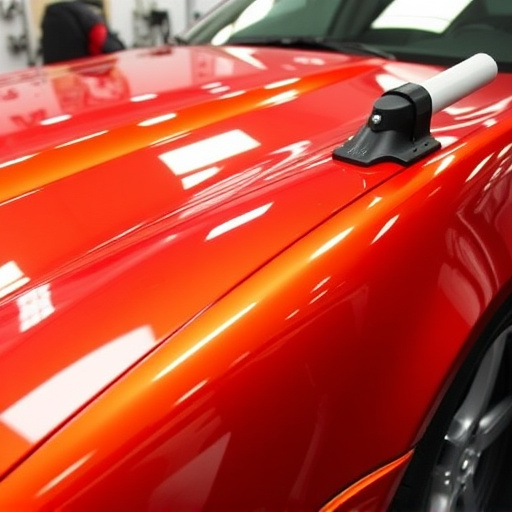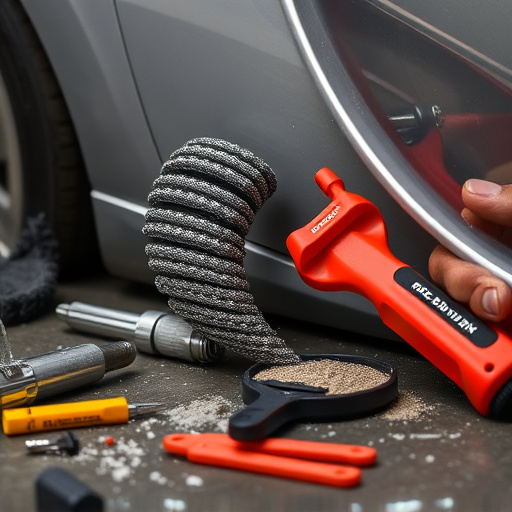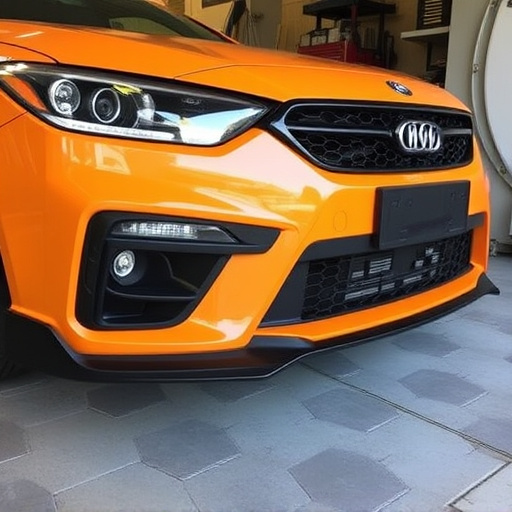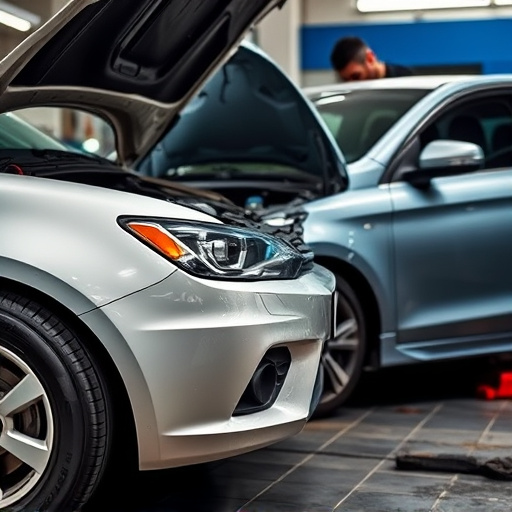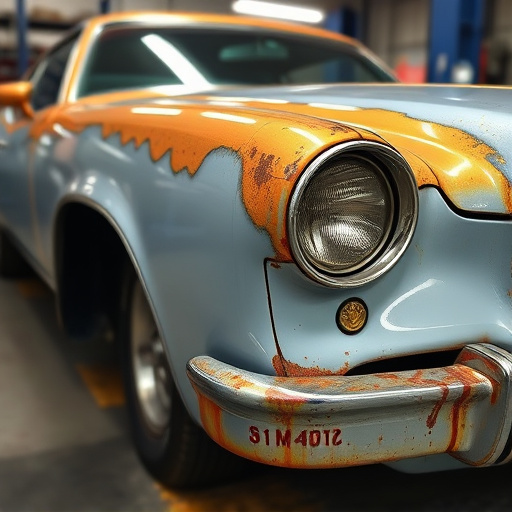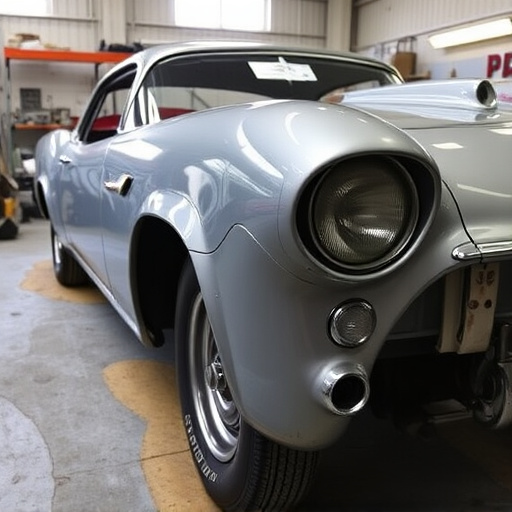Body panel insulation (BPI) is a vital automotive component, offering safety, comfort, and performance benefits. Specialized materials meet industry standards for heat resistance, corrosion prevention, and structural integrity. BPI acts as a regulator for noise, vibration, and temperature within the cabin, enhancing passenger comfort. Strict Safety Standards ensure BPI materials are fire-resistant, thermally protected, and impact durable, with rigorous testing and certification required. Auto collision centers adhering to these standards provide superior repairs, maintaining vehicle structural integrity. Quality manufacturing processes utilize advanced technologies to meet or exceed safety standards, minimizing repair costs and extending vehicle lifespan.
Body panel insulation is a critical component in automotive manufacturing, ensuring passenger safety and comfort. This essential material plays a vital role in meeting industry safety standards, particularly in crash scenarios. In this article, we’ll explore the materials and composition of body panel insulation, delve into the stringent safety regulations it must adhere to, and discuss quality control measures during manufacturing to guarantee compliance. Understanding these aspects is crucial for automotive engineers and manufacturers seeking top-tier body panel insulation solutions.
- Understanding Body Panel Insulation: Materials and Composition
- Industry Safety Standards for Body Panel Insulation
- Ensuring Quality and Compliance in Manufacturing
Understanding Body Panel Insulation: Materials and Composition

Body panel insulation is a critical component in ensuring vehicle safety and comfort. It involves the use of specialized materials to line and protect the inner walls of car bodies, specifically around doors, fenders, and other panels. These materials are designed to meet stringent industry standards, ensuring they can withstand high temperatures, prevent corrosion, and maintain structural integrity during accidents or harsh weather conditions.
The composition of body panel insulation often includes high-quality foams, fiberglass, or resin-based products. Auto repair services and collision repair shops meticulously apply these materials to create a barrier that insulates against noise, vibrates, and regulates temperature within the vehicle cabin. This not only enhances passenger comfort but also plays a vital role in achieving optimal performance and safety during every car bodywork service.
Industry Safety Standards for Body Panel Insulation
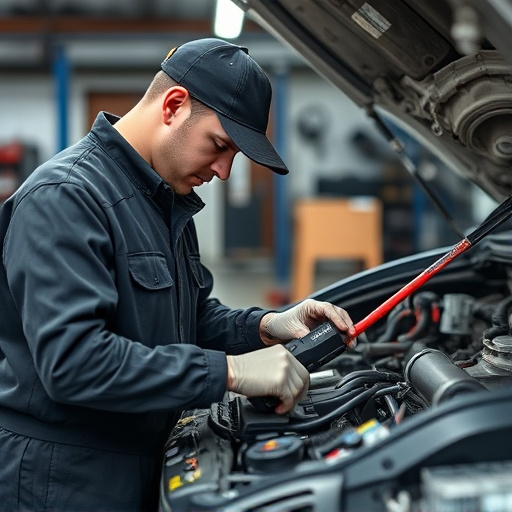
In the automotive industry, ensuring the safety and quality of body panel insulation is paramount. Body panel insulation plays a crucial role in vehicle safety, particularly in auto collision centers and car dent repair facilities. Industry Safety Standards for Body Panel Insulation are designed to guarantee that materials used meet specific criteria for fire resistance, thermal protection, and impact durability. These standards are vital to protect both the structural integrity of vehicles and the well-being of workers in vehicle body shops.
Compliance with safety standards involves rigorous testing and certification processes. Manufacturers must demonstrate that their body panel insulation products can withstand extreme conditions, including high temperatures, direct impact, and prolonged exposure to moisture. By adhering to these guidelines, auto collision centers can offer superior repairs, ensuring not only the safety of refurbished vehicles but also the satisfaction of their customers.
Ensuring Quality and Compliance in Manufacturing
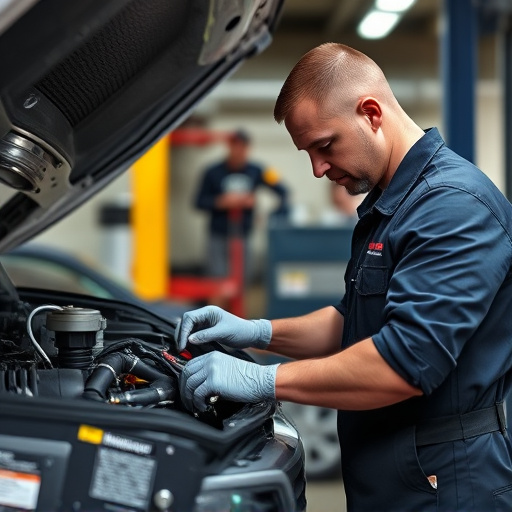
In the manufacturing process of body panel insulation for vehicles, ensuring quality and compliance with industry standards is paramount. The right materials and meticulous craftsmanship are essential to create durable and safe components. Every step, from sourcing raw materials to final inspection, must adhere to stringent guidelines to guarantee top-notch products. Manufacturers employ advanced technologies and rigorous testing protocols to verify the integrity of their body panel insulation, ensuring it meets or exceeds industry safety standards.
This commitment to quality isn’t just about product performance; it’s also crucial for minimizing car damage repair costs and enhancing overall vehicle longevity. By upholding these standards, manufacturers contribute to the peace of mind of drivers and service technicians alike, knowing that each piece of body panel insulation is designed and produced with the highest level of precision and reliability, encompassing essential aspects of auto maintenance and tire services.
Body panel insulation, adhering to stringent industry safety standards, is a critical component in enhancing vehicle performance and passenger comfort. By understanding the materials, ensuring quality manufacturing processes, and staying compliant, automotive manufacturers can deliver safer, more efficient vehicles. This ensures not only the protection of drivers and passengers but also contributes to the overall sustainability of the transportation sector through reduced energy consumption. With continuous innovation and adherence to standards, body panel insulation is poised to play an increasingly vital role in shaping the future of mobility.
